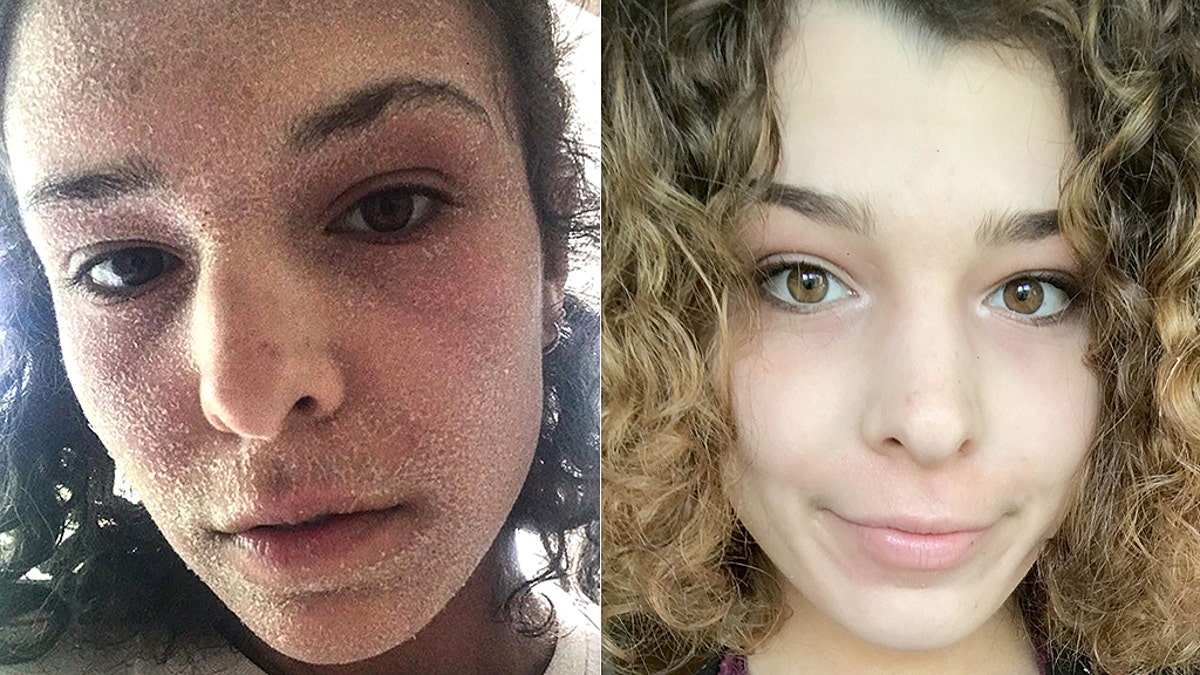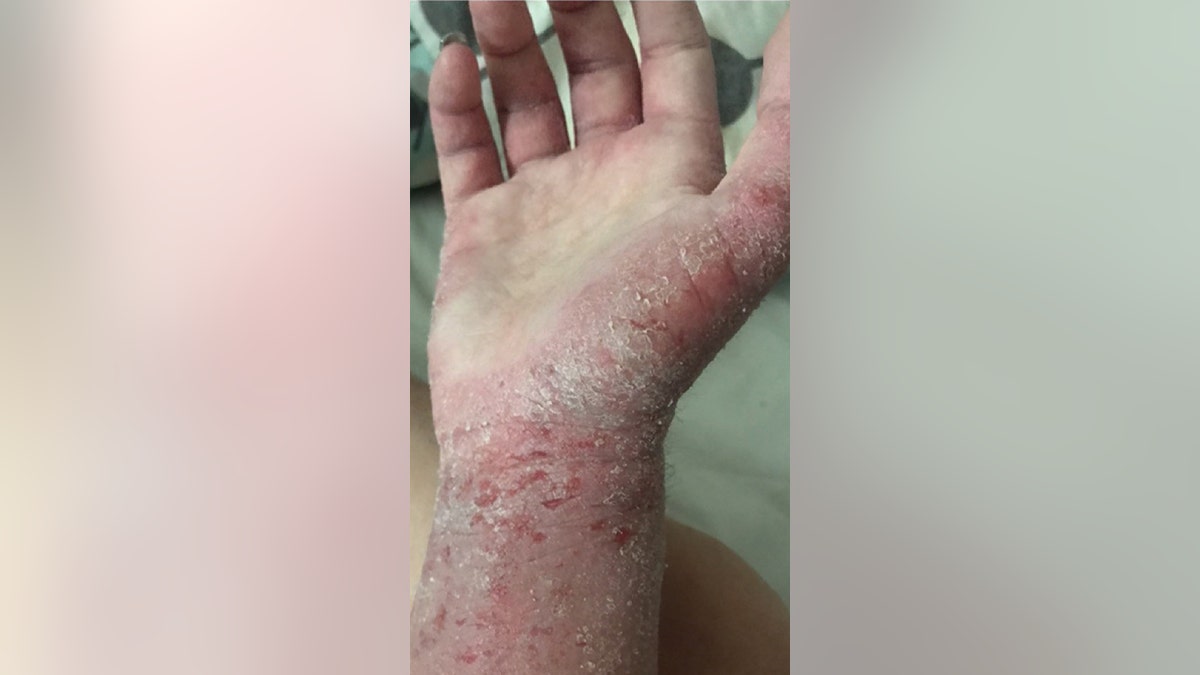Fox News Flash top headlines for Dec. 6
Fox News Flash top headlines for Dec. 6 are here. Check out what's clicking on Foxnews.com
A 23-year-old British woman with eczema says the skin condition “was controlling [her] life” and affecting her mental health after steroid-based creams failed to alleviate her severe symptoms, instead making them worse.
Alice Burleigh, a Ph.D. student at University College London who’s studying inflammatory diseases, told the Daily Mail she has long dealt with eczema and often used prescription steroid creams to treat the itchy condition. But over time, the creams ceased to help and reportedly caused her symptoms to worsen.
At one point, her skin was so dry, itchy and flaky the young woman said she had to sleep with mittens taped to her hands. When she awoke in the morning, her bed resembled a “sandpit,” forcing her to use a dustpan to clear her sheets and bedding of dead skin.
Burleigh, who was 13 when she was first diagnosed with the condition that affects some 31 million people in the U.S. alone, says her eczema became so severe that some dermatologists “weren’t willing to take on a case like mine.”
HAWAII TODDLER WITH ECZEMA SUFFERS SEVERE ‘LOBSTER’ RED, OOZING SKIN REACTION TO STEROID CREAM
Desperate for relief, Burleigh said she eventually took to social media in the search for answers.
“I hashtagged eczema [on social media] and found hundreds of accounts that had symptoms the exact same as mine and mentioned topical steroid withdrawal,” she recalled.

Alice Burleigh before she stopped using steroid-based creams (L) and the 23-year-old today (R). (Caters News Agency)
Topical steroid withdrawal, or TSW, is a “clinical adverse effect that can occur when topical corticosteroids are inappropriately used or overused, then stopped. It can result from prolonged, frequent and inappropriate use of moderate to high potency topical corticosteroids, especially on the face and genital area, but is not limited to these criteria,” reports the National Eczema Association.
With nothing to lose, Burleigh decided to stop applying the steroid-based creams. At first, her eczema worsened — so much so that she claims she lost roughly 14 pounds “because I felt so ill and lost my appetite.” What's more, she was forced to quit her job as a research scientist and decided to move back home with her parents.
“It was frustrating because when you are ill, you just want to lie down in bed. But when I was in bed, the sheets would irritate my skin. Most of the time, I was happiest standing up without clothes on in the middle of my room.”

Alice Burleigh's arm when she was dealing with a bad bout of eczema. (Caters News Agency)
Eventually, in addition to avoiding the steroid-based creams, Burleigh also chose to avoid any type of moisture — including showers and baths — in a bid to force her skin to create its own moisture, according to the Daily Mail. Some people going through TSW may choose to also follow no moisturizing treatment or NMT. The treatment helps the skin to once again produce its own cortisol, a process that can be damaged when using steroid-based creams for eczema.
Three weeks later, her skin drastically improved, Burleigh said.
CLICK HERE TO GET THE FOX NEWS APP
“The most frustrating part about this ordeal is doctors are the one who prescribed me with steroids that led to worse skin than ever before,” she said, adding she changed her diet and currently only showers once a week in a bid to keep her skin healthy.
“My diet is very restricted, but it has massively helped my skin, it is basic but worth it,' Burleigh said. “I learned about everything on Instagram and gained support from other girls going through the same thing. It was nice to know that I am not the only one and I have since made friends through TSW so at least there is one positive.”
She added: "I still suffer with flare-ups and my skin may not be perfect, but it is perfect to me."

